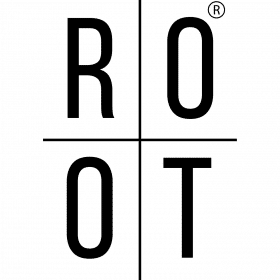How it Works: Peptides for Muscle Growth
In the relentless quest for sculpted physiques, a new weapon is emerging from the shadows of the scientific world: peptides. Once confined to research labs, these short chains of amino acids are finding their way into gym bags and whispered amongst fitness enthusiasts as the next big thing in bone and muscle growth. Promises of accelerated gains and ripped physiques are a siren song to anyone chasing bodybuilding glory.
But before you dive headfirst into the world of peptide supplements, consider this: the path to peak performance is rarely paved with shortcuts, and these powerful tools come with a hefty dose of potential side effects and unforeseen consequences.
So, are peptides the magic bullet to that superhero body or a recipe for trouble? Let’s dissect the science and the hype to find out.
How Do Amino Acids Work for Muscle Growth?
Amino acids are often hailed as the building blocks of life, particularly when building muscle. When you eat protein, your body breaks it down into amino acids. These amino acids are then used to repair and grow new muscle fibers. When you consume adequate protein, your body will experience a positive nitrogen balance, a measure of protein metabolism.
The Role of Muscle Protein Synthesis
Muscle protein synthesis is how the body repairs and rebuilds muscle fibers damaged during exercise. Amino acids play a pivotal role in this process. When you consume them, either through food or supplements, they stimulate anabolic pathways that lead to increased muscle growth. The amino acid leucine, which can be found in foods like eggs, salmon, brown rice, and soybeans, is well known for its ability to trigger muscle protein synthesis significantly. It acts as a pivotal signal to start the synthesis of new proteins and promote muscle growth.
Recovery and Repair
Intense physical activity can cause microscopic damage to muscle fibers, leading to muscle soreness and fatigue. Amino acids help repair and recover these muscles by accelerating the healing of the damaged tissues. They aid in the recovery process and prepare the muscles for future workouts, which can enhance muscle growth over time.
Essential vs. Non-Essential Amino Acids
Amino acids are categorized into essential and non-essential. The human body cannot produce essential amino acids, so diet or supplementation is necessary. These amino acids are crucial for various bodily functions, including muscle growth. Non-essential amino acids, while still necessary, can be synthesized by the body. However, the demand for these increases during stress or intense physical activity, and supplementation can become beneficial.
Amino acids are integral to muscle growth. They stimulate muscle protein synthesis, aid in the recovery and repair of muscle tissue, and support the overall health of the muscles. Understanding their role in muscle growth can help optimize your fitness regimen for better results, whether your goal is to enhance muscle growth, improve athletic performance, or enhance recovery.
Are Peptides Healthier Than Steroids?
Whether peptide supplements are a healthier alternative to steroids to stimulate muscle growth is complex and doesn’t have a simple yes or no answer. Both peptides for muscle gain and anabolic steroids can build muscle and influence body composition, but they work in very different ways.
Steroids vs. Peptides for Muscle Growth
Anabolic steroids directly mimic testosterone, the primary male sex hormone that plays a crucial role in muscle building. This can lead to significant gains in muscle and strength but also comes with a substantial risk of side effects, including increased body fat, liver damage, and hormonal imbalances.
On the other hand, peptides for muscle growth work through a more indirect approach. Specific peptides act as human growth hormone secretagogues, stimulating the pituitary gland to release more growth hormone.
Growth hormone then prompts the liver to produce insulin-like growth factor (IGF-1), critical in promoting muscle growth, building properties, repair, and recovery. Other specific peptides might mimic the effects of growth factors or hormones that influence muscle synthesis, the process by which your body builds muscle tissue.
While peptides may benefit muscle growth and recovery compared to steroids, they have drawbacks. Research on many muscle-building peptides’ long-term safety and efficacy is ongoing. Some potential side effects include increased risk of injury, muscle soreness, and fluctuations in energy levels. Additionally, specific peptides might need to be injected, unlike many oral steroids, which can raise concerns about sterility and proper injection techniques.
The main difference, however, is that steroids increase testosterone levels unnaturally in the body. But peptides increase the signal, allowing the body to create more of this hormone naturally. So, peptides are a much safer option, even though many athletes and bodybuilders still use steroids instead.
How Does Protein Synthesis Play A Role?
Protein synthesis is the fundamental process behind muscle growth, regardless of whether you rely on natural methods or consider peptides for muscle growth. It’s the cellular mechanism by which your body builds new muscle tissue.
Here’s how it relates to muscle growth:
Resistance training: When you lift weights or perform other resistance exercises, you create microscopic tears in your muscle fibers. This controlled stress triggers the body’s muscle and tissue repair mechanisms.
Amino acids as building blocks: Dietary protein is broken down into its building blocks, the amino acids. These amino acids, especially the essential ones you can’t produce yourself, become the raw materials for protein compounds.
Protein synthesis kicks in: After exercise, the body ramps up enhanced protein synthesis to repair the damaged muscle fibers and, more importantly, build them bigger and stronger to handle future stress better. This is what leads to increasing muscle growth and strength gains over time.
How do Peptides for Muscle Growth Fit into this Picture?
Specific peptides can influence muscle growth by indirectly affecting its creation. Here are two main mechanisms:
Growth hormone stimulation
Some peptides act as growth hormone secretagogues, signaling the pituitary gland to release more growth hormone. Growth hormone then stimulates the liver to produce insulin-like growth factor (IGF-1), a growth hormone-releasing hormone.
Mimicking growth factors
Other peptides might mimic the effects of specific growth factors or hormones that directly enhance muscle protein synthesis. Peptides for muscle growth may benefit building muscle by influencing these pathways, but remember, they’re not a magic bullet. A healthy, protein-rich diet provides the essential amino acids your body needs for optimal protein synthesis.
So, while peptides might provide additional support, a well-rounded approach that combines proper nutrition, resistance training, and sufficient rest is still the cornerstone for safe and sustainable lean muscle mass.
Ideal Muscle Mass
Achieving ideal muscle mass is pivotal for overall health, notably between genders and ages. It’s essential for aesthetics and enhancing metabolic health, physical strength, and longevity. Ideal muscle mass contributes to a healthier body composition, boosts metabolism, and lowers the risk of chronic diseases.
Peptides for muscle growth play a crucial role in this process, as these amino acid chains aid in muscle cell repair and promote significant muscle growth.
By stimulating human growth hormone (HGH) release and protein synthesis, peptides like collagen and growth hormone-releasing peptides support muscle enlargement and recovery. They also help increase lean muscle mass while reducing body fat, a crucial factor as muscle naturally declines with age.
But how much muscle is ideal?
The ideal muscle mass percentage varies by age for both men and women, reflecting the need for tailored strategies to maintain muscle health over time. For example, men aged 18-25 should aim for 33-38% of their body weight as muscle mass, while women in the same age group should target 31-35%. These percentages slightly decrease as people age.
Incorporating collagen peptides for muscle growth into a health regimen, alongside proper nutrition and resistance training, can significantly impact body composition, enhanced bone density, and overall well-being. Peptides facilitate growth hormone release and fat metabolism, improve energy levels, and reduce muscle soreness, making them invaluable for achieving and maintaining ideal muscle mass across different life stages.
What Are the Side Effects of Using Peptides for Muscle Growth?
When using peptides for muscle growth, individuals seek to enhance muscle mass, improve lean muscle mass, and reduce body fat by stimulating human growth hormone (HGH) and promoting muscle repair and growth.
Peptides are instrumental in boosting muscle cells’ growth, enhancing muscle hypertrophy, and supporting muscle recovery. These peptides for muscle growth are designed to work in harmony with the body’s natural processes, promoting protein synthesis, reducing muscle soreness, and aiding in fat loss, all of which contribute to better body composition and greater muscle growth and gains. However, using peptides for muscle growth has potential side effects that users should be aware of.
Discomfort
The most common side effects associated with peptides are related to how they are being used, such as injecting. These include skin reactions at the injection site, such as redness, itching, and swelling. While these symptoms are usually mild and transient, they can become problematic if the injections are not administered properly.
Hormonal Imbalances
The hormonal impacts of peptides should not be taken lightly. Overuse of peptides can lead to a hormonal roller coaster, with potential side effects including mood swings, fatigue, and reduced sexual function. Also, long-term misuse may lead to pituitary damage, impairing the body’s ability to produce human growth hormone naturally.
Fluid Retention
Among the various downsides of using peptides for muscle growth, fluid retention is a common concern. This occurs when excess fluid accumulates in your body tissues, causing swelling and puffiness. Certain peptides might directly or indirectly increase blood volume. This extra fluid puts pressure on your blood vessels, which can leak fluid into surrounding tissues, leading to swelling.
Increased Hunger
The promise of peptides for muscle growth can be alluring, but there’s a hidden cost some users might experience: increased hunger. Certain peptides can stimulate the release of ghrelin, a hormone that induces hunger.
Peptides that influence GH often lead to increased IGF-1 levels. IGF-1 not only promotes muscle growth but can also indirectly increase appetite by affecting pathways in the brain that regulate hunger and satiety. If not managed effectively, this can impact calorie goals and lead to unwanted weight gain.
Other Potential Side Effects
Though known for their significant contributions to the bodybuilding world, peptides for muscle growth are not without their issues. In this journey towards enhanced physical prowess, it’s critical to be aware of the potential hazards and side effects that might arise. These might also include but are not limited to:
- Discomfort from Nausea
- Frequent Headaches
- Joint Discomfort
- Increased Diabetes Susceptibility
- Potential for Insulin Resistance
- Acromegaly, an Overgrowth Condition of Body Tissues
Should You Stop Using Peptides for Muscle Growth?
Deciding whether to stop using peptides for muscle growth involves considering several factors, including your health goals, experiences with side effects, and advice from healthcare professionals.
Here are some considerations to help you make an informed decision:
- Health and Side Effects: If you experience adverse side effects from using peptides, such as hormonal imbalances, fluid retention, discomfort, or increased hunger, it might be wise to reconsider their use. Listen to your body and consult a healthcare provider to understand the implications.
- Long-Term Health: Consider the long-term impact on your health. While peptides can offer short-term benefits for muscle growth and fat loss, the long-term consequences are not fully understood. Discuss with a healthcare professional to weigh the benefits against potential risks.
- Goal Reassessment: Reflect on your fitness and health goals. If your objectives have changed or if you’ve reached your goals, it might be time to adjust or discontinue your peptide usage.
- Dependency: Consider whether you’ve become dependent on peptides to achieve or maintain your results. Aiming for a sustainable, balanced approach to fitness and health is crucial.
It’s essential to make health decisions based on thorough research, personal health status, and professional advice. If you’re considering stopping peptides, discuss it with a healthcare provider to ensure a safe and effective transition to other health and fitness strategies.




 What is ROOT Prime and what are its Benefits?
What is ROOT Prime and what are its Benefits?